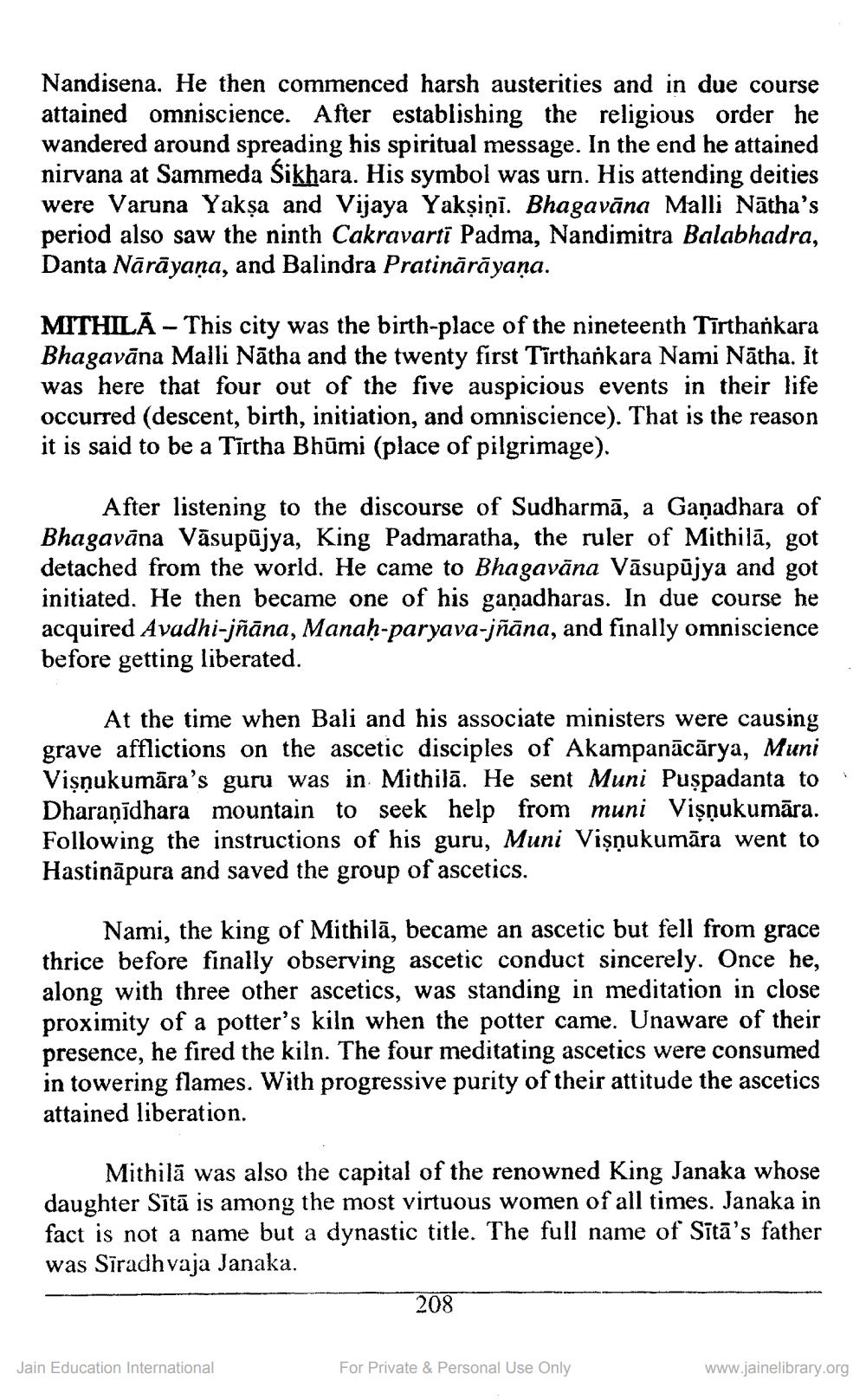________________
Nandisena. He then commenced harsh austerities and in due course attained omniscience. After establishing the religious order he wandered around spreading his spiritual message. In the end he attained nirvana at Sammeda śikhara. His symbol was urn. His attending deities were Varuna Yakșa and Vijaya Yakşiņi. Bhagavāna Malli Nātha's period also saw the ninth Cakravarti Padma, Nandimitra Balabhadra, Danta Nārāyaṇa, and Balindra Pratinārāyana.
MITHILĀ - This city was the birth-place of the nineteenth Tīrthankara Bhagavāna Malli Nātha and the twenty first Tīrthankara Nami Nātha. It was here that four out of the five auspicious events in their life occurred (descent, birth, initiation, and omniscience). That is the reason it is said to be a Tīrtha Bhūmi (place of pilgrimage).
After listening to the discourse of Sudharmā, a Ganadhara of Bhagavāna Vāsupūjya, King Padmaratha, the ruler of Mithilā, got detached from the world. He came to Bhagavāna Vāsupūjya and got initiated. He then became one of his ganadharas. In due course he acquired Avadhi-jñāna, Manah-paryava-jñāna, and finally omniscience before getting liberated.
At the time when Bali and his associate ministers were causing grave afflictions on the ascetic disciples of Akampanācārya, Muni Vişnukumāra's guru was in Mithilā. He sent Muni Puspadanta to Dharaṇīdhara mountain to seek help from muni Vişņukumāra. Following the instructions of his guru, Muni Vişnukumāra went to Hastināpura and saved the group of ascetics.
Nami, the king of Mithilā, became an ascetic but fell from grace thrice before finally observing ascetic conduct sincerely. Once he, along with three other ascetics, was standing in meditation in close proximity of a potter's kiln when the potter came. Unaware of their presence, he fired the kiln. The four meditating ascetics were consumed in towering flames. With progressive purity of their attitude the ascetics attained liberation.
Mithilā was also the capital of the renowned King Janaka whose daughter Sītā is among the most virtuous women of all times. Janaka in fact is not a name but a dynastic title. The full name of Sitā's father was Siradh vaja Janaka.
208
Jain Education International
For Private & Personal Use Only
www.jainelibrary.org




